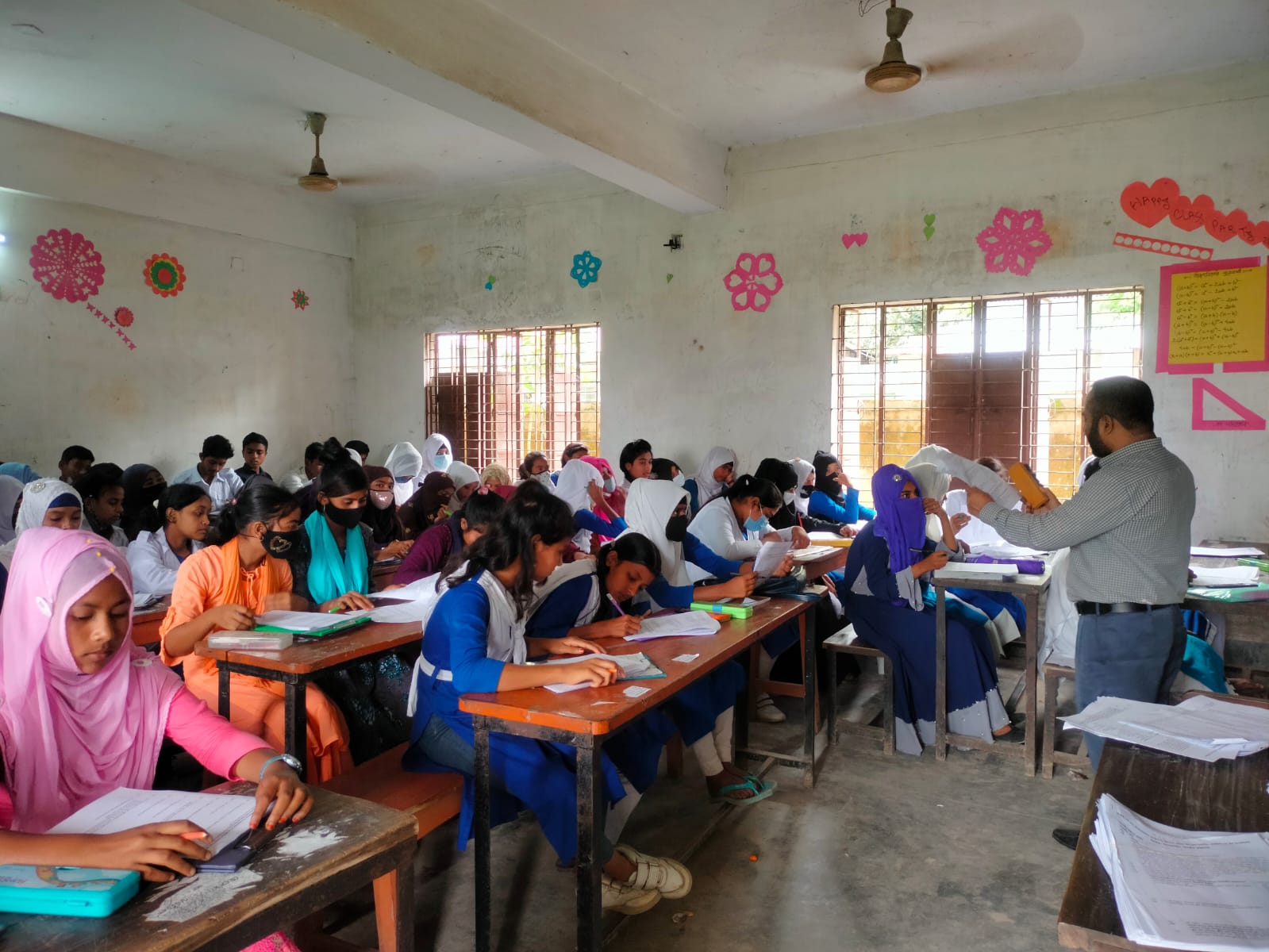- Massachusetts Institute Of Technology (MIT)
- Dr. Abu Shonchoy
- Dr. Tomoki Fujji
- Dr. Christine Ho
- Dr. Rohan Roy
- H. M. Masudur Rahman
- Md. Rahidul Islam
- Jahangir Alam
MOMODa FOUNDATION finished the end-line survey and all other relevant activities for the “Information Nudges to Prevent Learning Decay During COVID-19 in Bangladesh” (J-PAL project) in April 2023. It surveyed 1,200 secondary school students from four different schools in Gaibandha Sadar Upazila.
This initiative was created by the MOMODa in collaboration with the J-PAL (Jamil Poverty Action Lab) to address the learning gaps and decay brought on by the school being closed for more than 500 days during COVID-19. As part of this project’s intervention, MOMODa was sent to children or their parents’ cell phones once a week from November 2021 to November 2022.
The weekly voice calls and text messages were about (a) sharing their subjective teachers’ phone numbers because they can talk to their teachers and solve their subjective problems by calling or sending an SMS to their numbers and (b) sharing educationally related content links from Facebook, YouTube, and other sources. Presenting some earlier research findings that encourage students to go to school, and (d) grading the schedule of Sangshad TV’s educational programs.
All 1200 students received monthly quiz SMS in English grammar and mathematics from their textbooks starting in December 2021, in addition to the weekly text SMS and voice communication. The goal of sending students text messages, phone calls, and quizzes is to keep them interested in their studies and lower the number of students who drop out of school.
The COVID-19 pandemic has disrupted the education system worldwide, forcing millions of students to stay out of school for prolonged periods. This has resulted in significant learning losses and increased dropout rates, especially among the most disadvantaged and marginalized groups. In Bangladesh, schools have been closed for more than 500 days since March 2020, affecting over 40 million students across all levels. The government and other stakeholders have tried to provide alternative learning opportunities through online platforms, TV channels, and radio programs, but these have faced various challenges such as low access, quality, and engagement.
To address this situation, MOMODa FOUNDATION, a non-profit organization working on education and social innovation in Bangladesh, partnered with J-PAL (Jamil Poverty Action Lab), a global research network that conducts randomized evaluations of social programs, to implement and evaluate an intervention called “Information Nudges to Prevent Learning Decay During COVID-19 in Bangladesh”. The intervention aimed to motivate and support secondary school students in Gaibandha Sadar Upazila, a rural area in northern Bangladesh, to continue their learning during the school closure.
